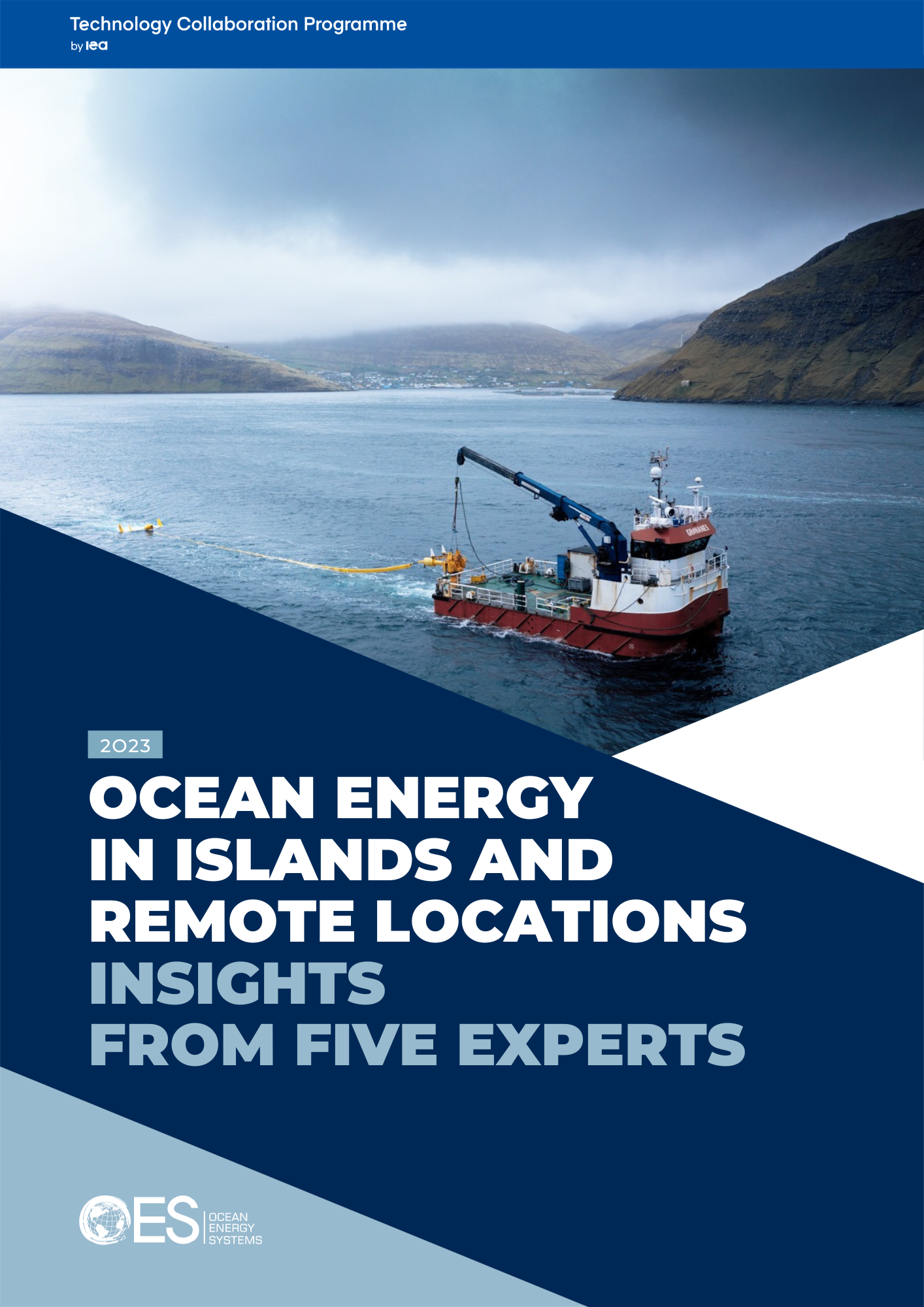IEA-OES Spotlights 5 Ocean Energy Projects in Islands and Remote Locations
Posted 2023-10-17 in News
This publication includes insights from five experts.
Leading up to its 48th ExCo meeting scheduled for next week in The Hague, the International Energy Agency's Ocean Energy Systems (IEA-OES) is pleased to announce the release of insightful interviews with five experts who have spearheaded pioneering ocean energy projects worldwide. These discussions provide valuable insights into the challenges and opportunities associated with harnessing ocean energy in remote regions.
The interviews explore the objectives, site selection, technical considerations, socio-economic impacts, environmental considerations, and future prospects of ocean energy projects in islands and remote locations. Together, they provide a comprehensive resource for those interested in the promising field of ocean energy in isolated communities worldwide.
Matthijs Soede, Chairman of the IEA-OES says, “Ocean energy is a promising source of clean energy, even in the most remote and challenging locations. These interviews demonstrate that innovation, collaboration, and a deep commitment to communities can unlock the vast potential of ocean energy. This publication serves as a source of inspiration for policymakers, researchers, and citizens interested in the clean energy transition.”
Featured Projects and Interviews:
- King Island UniWave200 Project – Paul Geason (Australia)
- Nova Innovation Tidal Array at Shetland Islands – Kate Smith (UK)
- Minesto’s Tidal Energy Kite at Faroe Islands – Patrik Pettersson (UK & Sweden)
- SABELLA D10 Project at Ushant Island – Robin Falcone (France)
- ORPC’s RivGen Power System in the Village of Igiugig, Alaska – Stuart Davies (USA)
Experts share significant lessons derived from their experiences in implementing ocean energy projects in such unique settings. They offer guidance on applying these insights to future projects in similar contexts, emphasising the importance of adaptable technologies and community-driven approaches. They also share their plans and aspirations for scaling up existing projects or replicating them in other isolated areas, reaffirming their commitment to sustainable energy solutions for communities worldwide. The publication includes 10 key messages that serve as guiding principles for the future of ocean energy in isolated regions.
Access the interviews
here.



